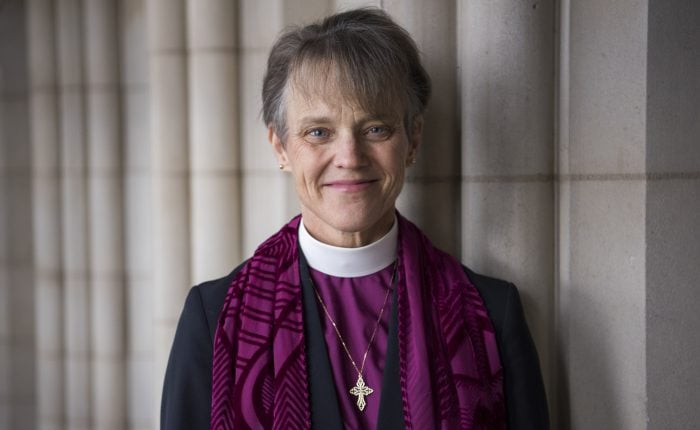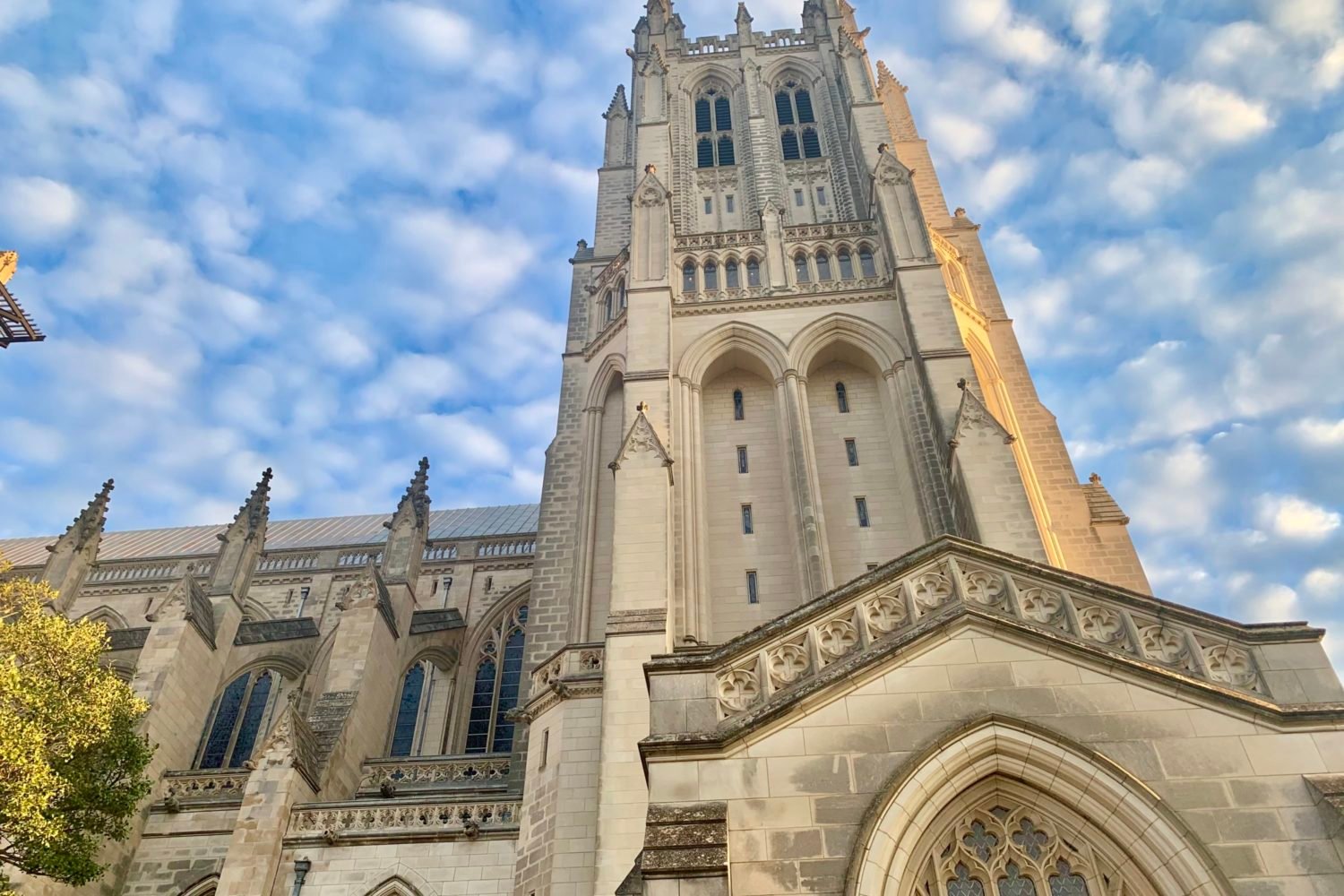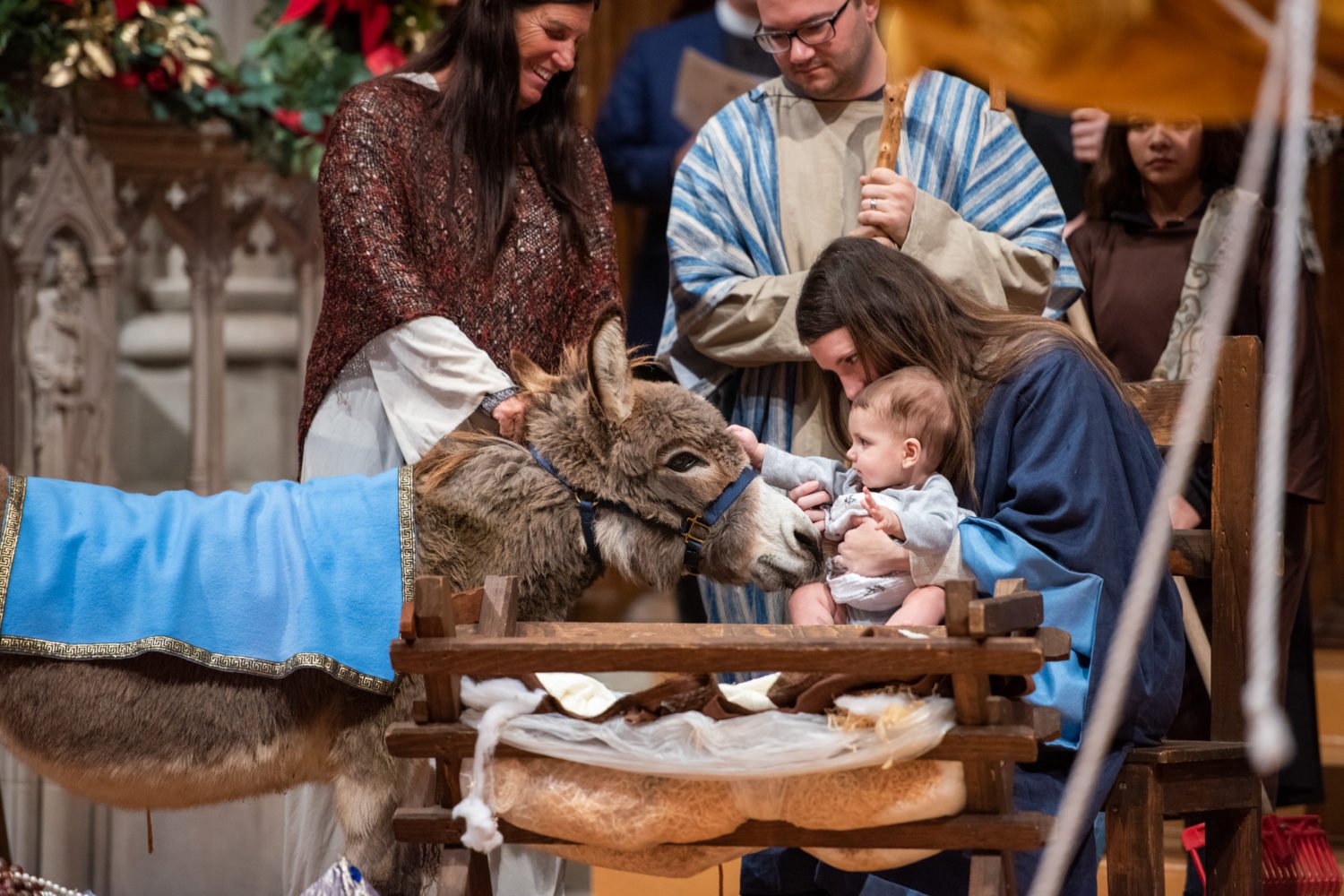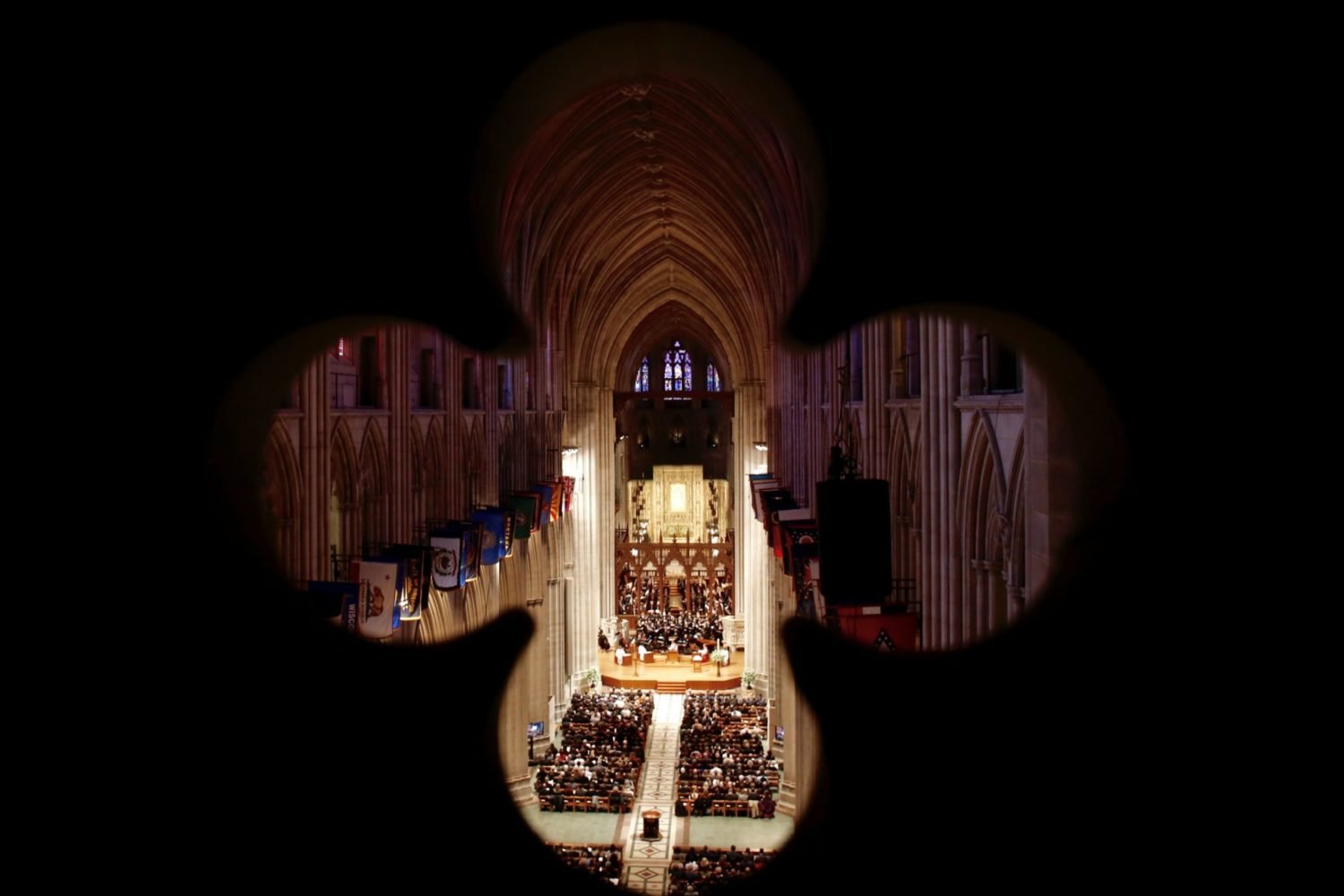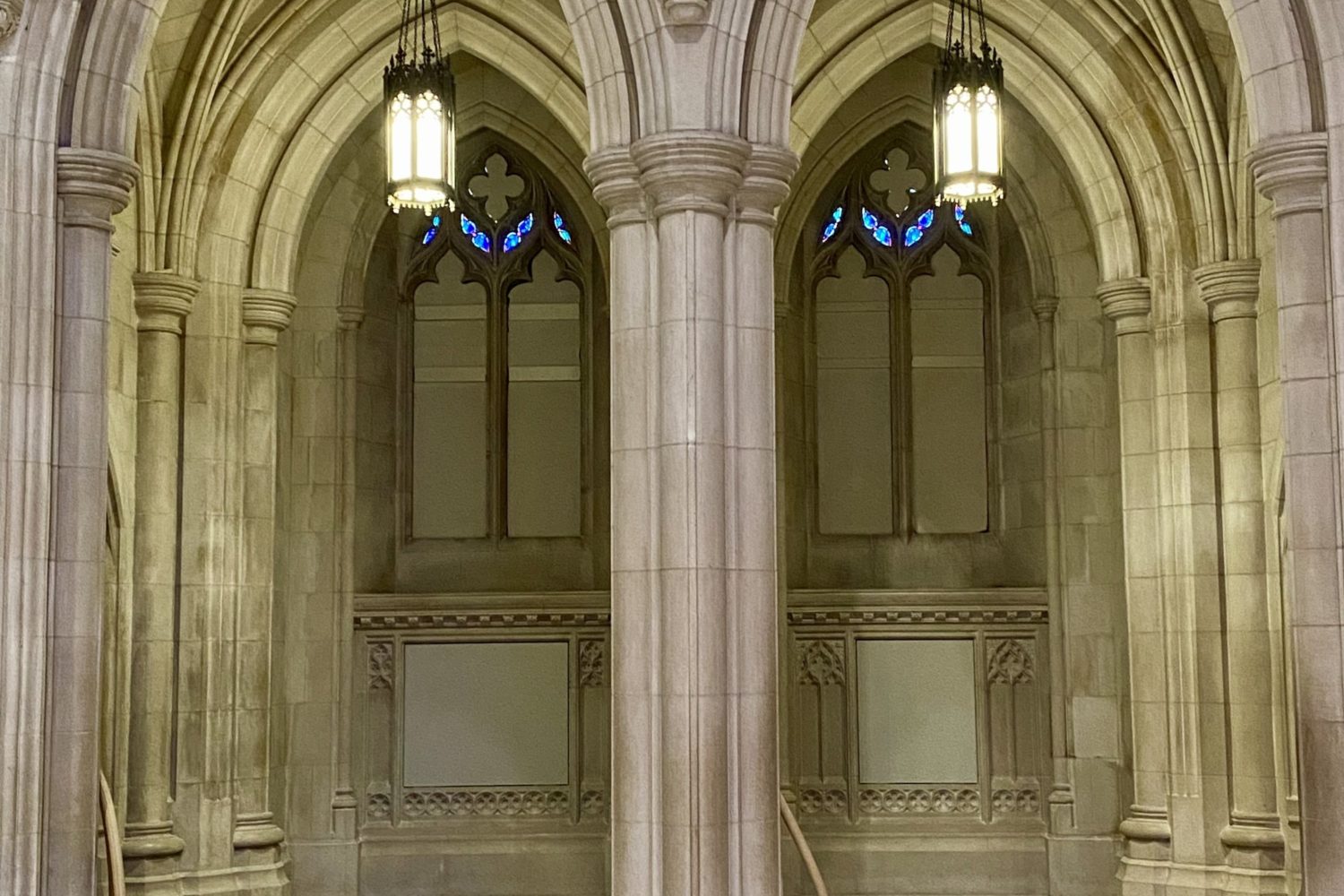President Trump’s Twitter tirades have become an inescapable and unpredictable complication of American life over the past two and a half years. “We’re all accustomed to waking up to news about what the President has tweeted in the early morning hours. That’s something that has become a routine,” says the Right Rev. Mariann Edgar Budde, the Bishop of the Episcopal Diocese of Washington, over the phone with Washingtonian. “If we commented on every offensive and inappropriate remark, that’s all we would do. In a way I think we’ve all become numb to the coarseness.”
But when Trump began his attacks on Baltimore this past weekend, Budde says, “we felt like this had really crossed a threshold of alarm and concern.”
Life in Baltimore isn’t an abstraction for Budde and the leaders of Washington National Cathedral. “Imagine you were African American and you were living in Baltimore,” like the Rev. Canon Kelly Brown Douglas’s 20-year-old son, Budde says. “Does that put an African American man in greater danger when there is such a politicized and racialized view?”
Budde says the cathedral’s leadership was also concerned that the President’s never-ending stream of invective was numbing the public to the effect his words have on public discourse. “The racial overtones are clear, and they are building,” she says. “Exhaustion leads to inactivity, and inactivity sometimes equates to complicity.”
And so she, Douglas, and the Very Rev. Randolph Marshall Hollerith, the Dean of Washington National Cathedral, began working on a statement they hoped would galvanize Americans the way Boston lawyer Joseph Welch did when US Senator Joseph R. McCarthy added the US Army to his ever-widening list of targets. “Have you no sense of decency, sir, at long last?” Welch berated the Senator. It was the moment that broke the fever of McCarthy’s hold on Washington and was the beginning of his downfall.
From Saturday until Tuesday afternoon, Budde, Douglas, and Hollerith worked on parts of a statement that they knit together into an article they called “Have We No Decency? A Response to President Trump.” The statement is an extraordinary repudiation of Trump’s “violent dehumanizing words.”
Budde says the cathedral’s leadership didn’t necessarily feel like this statement was a way of engaging with Trump—“We don’t feel that the President is open to personal engagement in this way”—but that the intended audience was the American public, to whom the cathedral leadership wished to say that this need not be our normal, that we don’t need to accept this as normal.”
The cathedral has “an uneven history, as with most churches” when it comes to engagement with political leaders, Budde says. In recent years it has published statements criticizing Trump’s decision to ban transgender people from the military, his policies that separate families at the United States’ southern border, and his decision to weaken a provision of the US tax code that prohibits churches from endorsing candidates. Budde stresses that’s not the same thing as making a statement like “Have We No Decency”: “The separation of church and state was never designed to prevent religious people from being involved in the public square,” she says. “We try to be as balanced as we can so that no matter what your position that you feel that the cathedral and its leadership will be respectful to your views.”
That’s very difficult with a leader like Trump, who doesn’t exactly court nuance. As a rule, you’re either all in, or you despise him. Budde hopes that by calling for decency in discourse, Americans can find a middle ground. “Let’s find that space again, let’s remember what decency sounds like and what honest debate sounds like.” The stakes, she believes, are quite high: “It’s when people of goodwill do nothing that evil, and I don’t mean evil people, but really destructive behavior, can run amok for a while.”
I asked Budde if there were any particular teachings from the Bible or elsewhere that she looked to when working on this statement. There are lots, she says. “I set my sights on Jesus of Nazareth and his teachings and his unconditional love, mercy, and forgiveness. He was also one that was unafraid to speak forcefully to political and religious leaders that were abusive of their power.” Especially in the teachings of the prophets regarding justice and righteousness, she says, “There is a real sense that we are called to build a society that is reflective of the word that God has revealed to us. God cares about everyone. So all of that is my guiding light.”
Reaction to the statement has run about ten to one positive to negative, Budde says, with most people beginning their messages with words like “thank you” and “a few that have been critical and have asked me to stay quiet.”
She has no immediate plans for further statements, but says she’s open to an interfaith statement that would further stand up for decency. “I would like to do this across the supposed divides of the country,” she says. “Wouldn’t that be something?”

